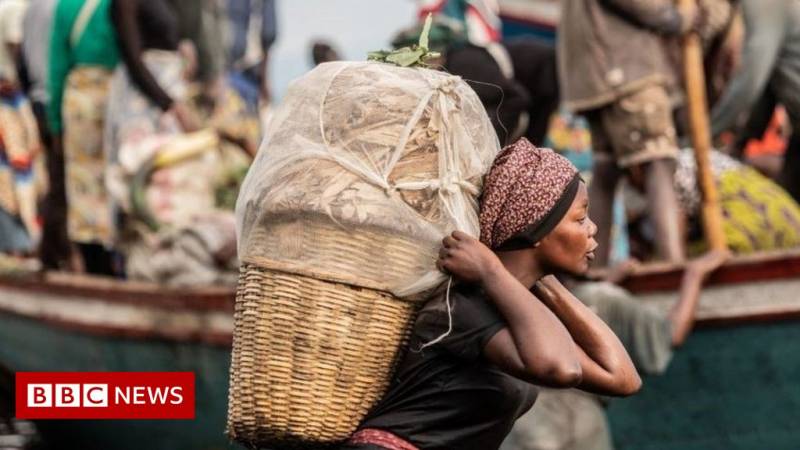The Democratic Republic of Congo has become the EAC's seventh member, dramatically expanding the trading bloc's territory, providing it access to the Atlantic Ocean, and significantly increasing the number of French speakers in what began as a club of former British colonies.
At a summit conference on Tuesday, EAC heads of state accepted the admission of the Democratic Republic of Congo into the bloc, but while it is now an official member, not much can change right away.
Before the EAC laws and regulations take effect, Congolese legislators must ratify them.
Congolese citizens who seek to visit the EAC's other member nations - Burundi, Kenya, Rwanda, South Sudan, Tanzania, and Uganda - without a visa may have to wait a bit longer, as full integration could take months or possibly a year.
South Sudan, for example, took four months from signing the community treaty in April 2016 to joining the EAC as a full member in August of same year.
In 2019, the Democratic Republic of Congo filed for membership, intending to strengthen trade and political connections with its East African neighbors.
It will allow Congolese individuals to freely travel to other countries, and trade will become much faster, easier, and less expensive, benefiting businesses and consumers in all countries.
With the exception of Kenya, all EAC members share borders, and the country seeks to attract additional investors from the region.
By joining the group, the Democratic Republic of the Congo has easier access to infrastructure like the Indian Ocean ports of Dar es Salaam and Mombasa.
Import tariffs on goods accepted as being created in the Democratic Republic of Congo will be eliminated or considerably reduced when entering other countries, and commodities will be transported at a far lower cost.
"For a long time, we have been anticipating this announcement. We are overjoyed "A Congolese trader living near the Ugandan border, Ley Molo Ley, told the BBC.
Traveling to Uganda for Congolese businesspeople is currently difficult, he said: "A Congolese must pay $45 (£35) on the DR Congo side of the border to obtain travel documents to enter Uganda. Then, after they get in Uganda, they must pay $50 for a visa. Then there's the cost of a Covid-19 test, bringing the total to almost $120."
Roman Waema, the president of the Kenya Long Distance Truck Drivers and Allied Workers Union, is looking forward to the end of his long wait to enter the Democratic Republic of Congo.
"Right now, we're dealing with a lot of obstacles, such as queuing for a visa to enter the DRC, waiting days for our goods to be cleared at the border, resulting in hefty parking and storage fees, among other charges before arriving to our final destination," he said.
The process of shipping goods across borders should be made considerably simpler; currently, border agencies use multiple methods.
"Goods will be cleared more quickly." Customs officials from Uganda and the Democratic Republic of Congo will sit in the one-stop border checkpoint once it opens.




